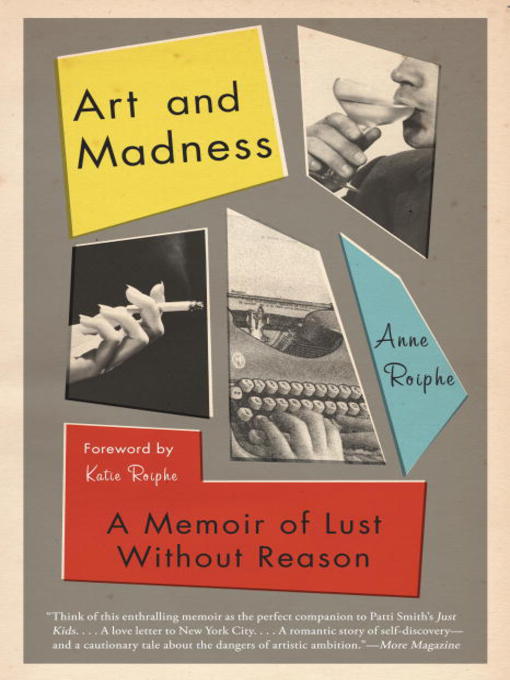Luminous and intensely personal, Art and Madness recounts the lost years of Anne Roiphe’s twenties, when the soon-to-be-critically-acclaimed author put her dreams of becoming a writer on hold to devote herself to the magnetic but coercive male artists of the period.
Coming of age in the 1950s, Roiphe, the granddaughter of Jewish immigrants, grew up on Park Avenue and had an adolescence defined by privilege, petticoats, and social rules. At Smith College her classmates wore fraternity pins on their cashmere sweaters and knit argyle socks for their boyfriends during lectures. Young women were expected to give up personal freedom for devotion to home and children. Instead, Roiphe chose Beckett, Proust, Sartre, and Mann as her heroes and sought out the chaos of New York’s White Horse Tavern and West End Bar.
She was unmoored and uncertain, “waiting for a wisp of truth, a feather’s brush of beauty, a moment of insight.” Salvation came in the form of a brilliant playwright whom she married and worked to support, even after he left her alone on their honeymoon and later pawned her family silver, china, and pearls. Her near-religious belief in the power of art induced her to overlook his infidelity and alcoholism, and to dutifully type his manuscripts in place of writing her own.
During an era that idolized its male writers, she became, sometimes with her young child in tow, one of the girls draped across the sofa at parties with George Plimpton, Terry Southern, Doc Humes, Norman Mailer, Peter Matthiessen, and William Styron. In the Hamptons she socialized with Larry Rivers, Jack Gelber and other painters and sculptors. “Moderation for most of us is a most unnatural condition . . . . I preferred to burn out like a brilliant firecracker.” But while she was playing the muse reality beckoned, forcing her to confront the notion that any sacrifice was worth making for art.
Art and Madness recounts the fascinating evolution of a time when art and alcohol and rebellion caused collateral damage and sometimes produced extraordinary work. In clear-sighted, perceptive, and unabashed prose, Roiphe shares with astonishing honesty the tumultuous adventure of self-discovery that finally led to her redemption.
- Dirt, Dinosaurs, and David Attenborough
- New eBook additions
- Handmade and Homegrown
- Dungeons & Dragons
- True North Strong and Well-Read
- Canada Reads 2025
- Always Available Fiction
- Always Available Non Fiction
- Black History and Black Future
- Witch, Please
- Looks Sweet but Could Be Spicy
- Based on a True Story: Page to Screen Edition
- Indigenous History and Voices
- See all ebooks collections
- Canada Reads 2025
- True Crime: For When You Run Out of Podcasts
- Available now
- Lest We Forget
- Summer Reading List: Recent Canadian books to read this summer
- New audiobook additions
- Looks Sweet but Could Be Spicy
- Most popular
- Hamilton Reads 2024: Chrysalis
- Indigenous History and Voices
- Based on a True Story: Page to Screen Edition
- Entering Our Eclipse Era
- BookTok Made Us Do It
- See all audiobooks collections
- Cooking & Food
- Home & Garden
- Lifestyle
- Fashion
- Health
- Business and Economics
- See all magazines collections




